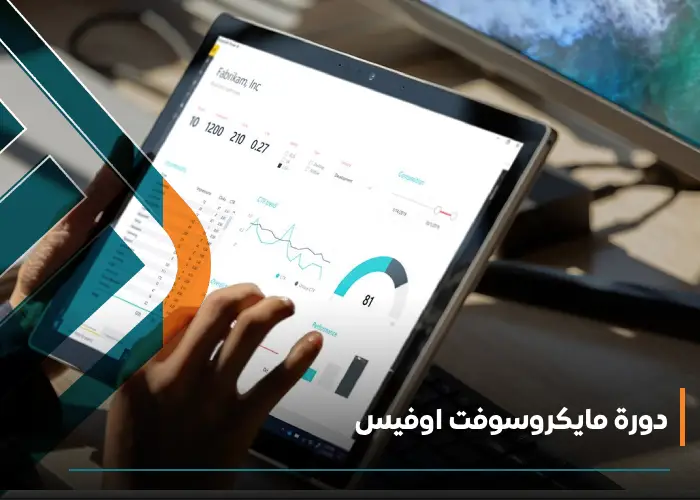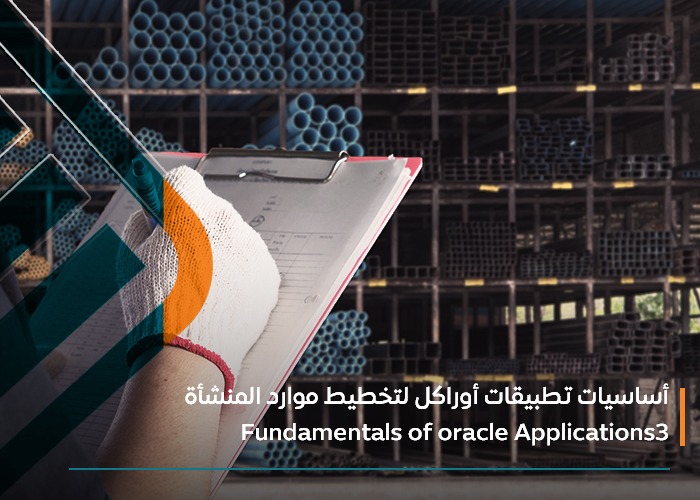General Objective of the Program:
Develop trainees' skills in dealing positively with work stress efficiently and effectively.
Capabilities the Program Aims to Develop:
Managing work stress with high efficiency and effectiveness.
Objectives:
-
Introduction to work stress
-
Basic concepts of stress
-
Measuring stress
-
Personal sources of work stress
-
Organizational sources and stress management methods
Expected Outcomes:
After completing the program, the trainee is expected to be able to:
-
Understand the nature of work stress easily and efficiently.
-
Grasp the relationship between work stress and performance easily and efficiently.
-
Identify the positives and negatives of work stress easily and efficiently.
-
Identify the characteristics of personality type (1) efficiently and effectively.
-
Use practical work stress measurement tools efficiently and effectively.
-
Identify the personal sources of work stress efficiently and effectively.
About course
In the fast-paced and challenging work world, learning how to manage work stress is vital for achieving sustainable success and maintaining high performance. Many organizations and individuals face daily challenges such as increasing workloads, tight deadlines, and unrealistic expectations, which lead to psychological and physical stress that can negatively affect productivity and overall well-being.
This course is specifically designed to equip you with effective tools and strategies to manage work stress smartly and effectively. The course will focus on time management techniques, prioritization, and dealing with stressful situations using practical methods that help reduce tension and improve performance in the workplace.
By learning relaxation techniques, enhancing work-life balance, and building psychological resilience, you will be able to reduce the negative effects of work stress, enhancing your ability to adapt and excel in a competitive work environment. This course will help you recognize the symptoms of work stress and learn how to effectively interact with various difficult situations, leading to improved mental health and increased productivity.
Join us now to learn how to turn work stress into an opportunity for personal improvement and development, and achieve success in your career with confidence and ease.
What is Work Stress?
Work stress is a psychological and physiological state experienced by individuals when professional demands exceed their ability to effectively adapt or cope with them. Work stress arises from the accumulation of multiple tasks, tight deadlines, or pressure from supervisors and subordinates, leading to feelings of burnout, tension, and the inability to perform well at work.
Work stress management skills are essential for success in the workplace. The ability to identify the sources of work stress and cope with them in healthy ways greatly contributes to improving overall performance and increasing productivity. By learning techniques such as time management, effective communication, and prioritization, individuals can confront stress and turn it into a motivator to achieve their goals.
Work stress is one of the challenges that must be faced, especially in fast-paced work environments. Therefore, strategies for managing work stress are an essential part of professional and personal growth. By understanding the causes of work stress, individuals can learn how to effectively minimize it, helping them maintain psychological and physical balance, which enhances their ability to perform at their best in the workplace.
In this course, you will learn how to identify the sources of work stress and manage them effectively to achieve professional success while maintaining your mental and physical health.
Causes of Work Stress
Work stress is one of the major challenges employees face in modern workplaces, and it results from several factors related to daily tasks or even the surrounding environment. By understanding the causes of work stress, we can identify the right strategies to manage it and achieve the desired balance between job performance and mental health.
Some of the major causes of work stress include:
-
Excessive Workload: When a job requires a large number of tasks in a short period or overlaps with tight deadlines, it becomes difficult for an employee to manage all these tasks efficiently, leading to increased tension and exhaustion.
-
Lack of Recognition and Support: Feeling undervalued by superiors or not receiving enough support from colleagues leads to isolation and psychological stress for the employee. Work stress management skills require a supportive work environment that encourages cooperation and mutual respect.
-
Unrealistic Expectations: Often, employees face stress due to unrealistic expectations from superiors or even from themselves. The pressure to achieve superior results within a limited time can cause mental stress and affect the quality of work.
-
Constant Changes in the Work Environment: Sudden changes in responsibilities, organizational structure, or work strategies can be a major source of work stress, as employees find it difficult to adapt to these changes quickly, causing anxiety and tension.
-
Conflict Between Work and Personal Life: Achieving a balance between work and personal life is one of the biggest challenges employees face. When work takes precedence over personal life, feelings of exhaustion increase, leading to psychological stress that affects performance and well-being.
-
Poor Relationships with Colleagues or Management: Negative relationships in the workplace can be one of the primary causes of work stress. Conflicts between colleagues or with management can significantly affect an employee's mental health, causing stress and negatively impacting job performance.
By acquiring work stress management skills, employees can identify these stress-inducing factors and learn effective ways to cope with them. Time management, effective communication with colleagues and superiors, and setting clear boundaries between work and personal life are all techniques that help reduce work stress and create a healthy and productive work environment.
Strategies for Managing Work Stress
Work stress management strategies are essential skills that every employee must develop to ensure good performance in a challenging work environment. Work pressure is an inherent part of professional life, but effectively managing work stress requires specific techniques and tools that can improve productivity while maintaining mental health.
Key strategies for managing work stress include:
-
Effective Time Management:
Time management is one of the most powerful strategies for managing work stress. By setting priorities and creating a flexible schedule, both organizations and individuals can reduce the stress caused by a heavy workload. Learning prioritization techniques helps focus on the most important tasks and ensures they are completed on time. -
Relaxation and Meditation Techniques:
Relaxation techniques such as deep breathing, meditation, and yoga are effective tools for reducing tension and improving focus. When employees practice these activities regularly, they experience significant improvements in their mental health, which greatly contributes to reducing work stress. -
Developing Effective Communication Skills:
Good communication with colleagues and superiors helps clarify expectations, exchange information efficiently, and reduce misunderstandings, which contributes to reducing stress caused by miscommunication. Effective communication skills can help create a flexible and low-pressure work environment. -
Setting Clear Boundaries Between Work and Personal Life:
Maintaining a balance between work and personal life is one of the most important strategies to combat work stress. By allocating time for rest and personal activities, employees can avoid burnout, which helps improve performance and reduce mental strain. -
Seeking Support When Needed:
In a work environment facing significant stress, seeking support from colleagues or supervisors is essential. This support can include emotional assistance or help with managing heavy tasks. Learning how to seek support when needed helps reduce the psychological burden. -
Learning Adaptation Techniques for Change:
In constantly changing work environments, learning how to adapt to change is crucial. Employees with mental flexibility can handle the pressures of change more effectively.
Badr Center's Role in Developing Work Stress Management Skills:
Badr Center is one of the leading training centers that offers specialized programs in managing work stress. Badr Center provides courses designed to develop work stress management skills through time management techniques, communication improvement, and building a positive work environment. Participants are trained on how to apply work stress management strategies in their professional lives, helping them improve individual and team performance in the workplace.
By receiving specialized training in work stress management from Badr Center, trainees will be able to apply effective tools and techniques to deal with daily work challenges with confidence and flexibility, enhancing their productivity and the quality of their professional life.
The Difference Between Work Stress and Burnout
In the modern workplace, employees experience work stress on a daily basis, but continuous pressure may lead to a more advanced state known as burnout. It is essential to distinguish between work stress and burnout to understand how to handle each effectively.
Work Stress:
Work stress is a temporary condition experienced by an employee due to certain job challenges such as heavy tasks, tight deadlines, or high expectations from superiors or colleagues. The tension resulting from work stress is a natural part of professional life and can be managed using work stress management skills such as time management and effective communication.
Work stress often arises from:
-
A heavy workload in short periods.
-
The need to meet unrealistic expectations.
-
Conflict between work and personal life.
-
Pressure related to achieving high goals.
If work stress is managed properly using techniques such as proper organization, prioritization, and balancing work and personal life, its effects can be significantly reduced.
Burnout:
On the other hand, burnout is a more advanced and cumulative psychological and physiological condition. It occurs when an employee feels completely helpless and exhausted due to prolonged exposure to work stress without sufficient breaks. Burnout is the result of feelings of isolation, loss of motivation, and continuous emotional exhaustion.
Best Center for Work Stress Management Course
Given the fast-changing work environments and increasing challenges, work stress management skills have become essential for every employee. Therefore, Badr Center for Training is the ideal choice for those looking to develop these skills professionally.
Why Choose Badr Center?
-
Comprehensive Training Content:
Badr Center offers a comprehensive course in work stress management, covering topics such as:-
Understanding and identifying sources of stress.
-
Time management and prioritization techniques.
-
Strategies for dealing with stressful situations.
-
Building psychological resilience and adaptability.
-
-
Accredited Certification:
Upon successful completion of the course, trainees receive an accredited certificate from Badr Center, which adds real value to their resume and increases job opportunities in the future. -
Career Readiness:
The course focuses on equipping participants with practical skills that enable them to deal effectively with work stress, improving their performance and increasing their chances of securing prestigious job positions. -
Variety of Training Methods:
Badr Center offers courses both in-person and online, providing flexibility for participants to choose the option that best suits their personal and geographical circumstances. -
Ongoing Support:
Badr Center ensures continuous support for trainees by following up on their progress and providing necessary consultations to ensure they gain maximum benefit from the course.
If you're looking to develop your skills in managing work stress, the Badr Center course is the ideal choice for you. With comprehensive training content, accredited certificates, and career readiness, you'll gain the tools you need to handle work challenges effectively and professionally.


































